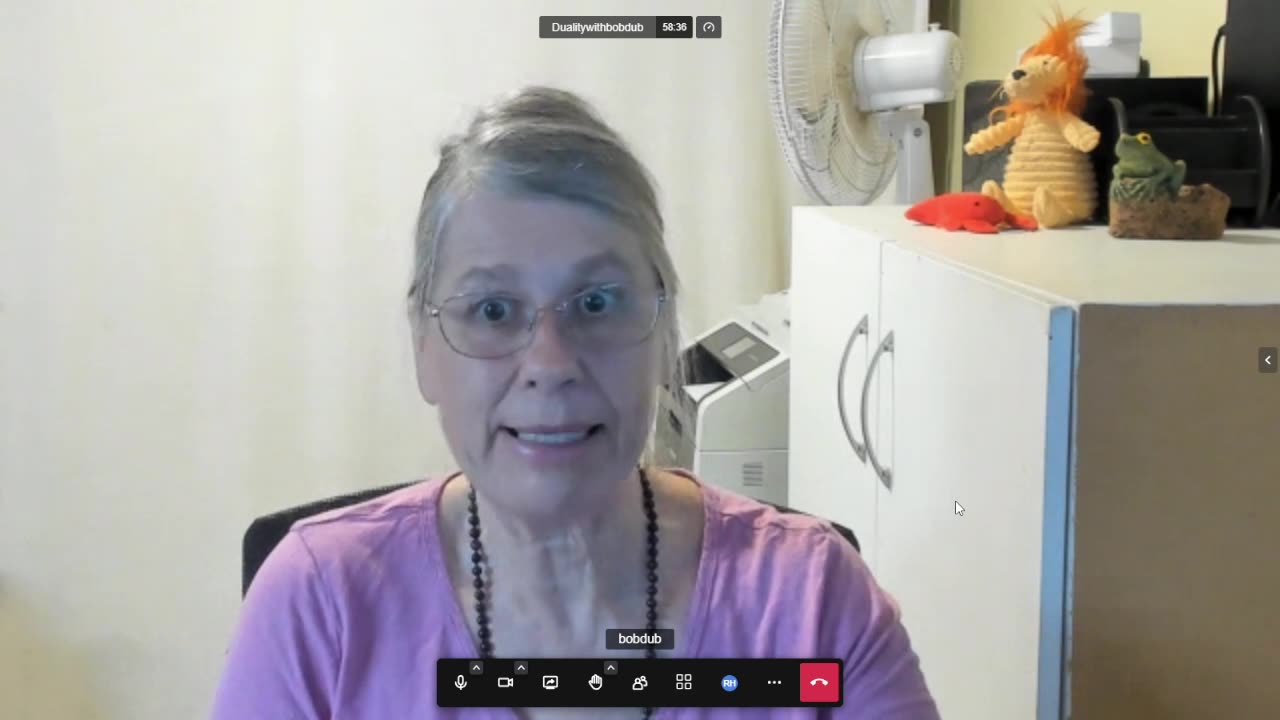Premium Only Content

Duality with bobdub
Duality of Man:
The duality of man is a concept that refers to the contradictory and complex nature of human beings.
a. It suggests that every person has both good and evil within them, and that their actions and choices reveal their dominant personality. b. The duality of man can also be used to contrast different views or reactions to the same topic or situation.
c. The duality of man is a common theme in literature, philosophy, and psychology
What is the difference between Dualism and Duality
a. Duality refers to the state of being divided into two parts or aspects.
b. It is the concept of two complementary, yet opposing forces or ideas that exist simultaneously.
c. Examples of duality can be seen in various aspects of life, such as light and dark, good and evil, and yin and yang.
c. Dualism, on the other hand, is the philosophical belief that the universe is made up of two opposing and irreducible principles.
d. It is the idea that there are two separate and distinct realities, and that they are in a constant state of conflict.
e. Examples of dualism include mind and matter, good and evil.
Duality
a. Complementary and opposing forces or ideas.
b. Necessary for balance and harmony.
c. light and dark, good and evil, yin and yang.
Dualism
a. Irreducible principles in conflict.
b. Constant state of conflict.
c. mind and matter, good and evil.
This is not a case of a distinction without a difference, but of a distinction without a terminology. I assume that the term Duality avoids the sense of disruption and hostility implied in the ending “ism.”
a. Dualism proper regards the second principle as well as the first as active.
b. The Stoics, like Plato, regarded matter as passive.
Can you give me an example where both concepts are incorporated?
a. A good example of a belief system that incorporates both dualism and duality is the Dvaita Vedanta school of Indian philosophy.
b. Dvaita Vedanta espouses a dualism between God and the universe by theorizing the existence of two separate realities.
c. The first and the most important reality is that Vishnu or Brahman is the supreme Self, God, the absolute truth of the universe, the independent reality.
d. The second reality is the universe and the living beings within it1.
e. Dvaita Vedanta also incorporates the concept of duality.
f. It acknowledges the existence of complementary yet opposing forces within the universe.
It recognizes the duality of the individual soul (Jivatman) and the universal soul (Paramatman), and the interplay between them.
g. In this philosophy, dualism is reflected in the separation of God and the universe, while duality is seen in the complementary yet distinct nature of the individual and universal souls.
-
 3:28:16
3:28:16
Live with Roger Hanson
8 days agoOperation Secret Santa™ (2024) Campaign FINALE !!!!
59 -
 2:25:43
2:25:43
Darkhorse Podcast
16 hours agoLooking Back and Looking Forward: The 258 Evolutionary Lens with Bret Weinstein and Heather Heying
165K211 -
 5:50:16
5:50:16
Pepkilla
15 hours agoRanked Warzone ~ Are we getting to platinum today or waaa
115K7 -
 9:15:09
9:15:09
BrancoFXDC
13 hours ago $9.25 earnedHAPPY NEW YEARS - Road to Platinum - Ranked Warzone
100K4 -
 5:53
5:53
SLS - Street League Skateboarding
5 days agoBraden Hoban’s San Diego Roots & Hometown Win | Kona Big Wave “Beyond The Ride” Part 2
105K14 -
 6:03:57
6:03:57
TheBedBug
17 hours ago🔴 LIVE: EPIC CROSSOVER - PATH OF EXILE 2 x MARVEL RIVALS
105K9 -
 1:12:45
1:12:45
The Quartering
15 hours agoTerror In New Orleans, Attacker Unmasked, Tesla BLOWS UP At Trump Tower! Are We Under Attack?
165K267 -
 1:32:08
1:32:08
Robert Gouveia
17 hours agoNew Year TERROR; Trump Speaks at Mar-a-Lago; Speaker Johnson FIGHT
135K112 -
 22:21
22:21
Russell Brand
1 day agoVaccines Don't Cause Autism*
206K892 -
 2:05:27
2:05:27
The Dilley Show
16 hours ago $27.18 earnedNew Years Agenda, New Orleans Terror Attack and More! w/Author Brenden Dilley 01/01/2025
121K39